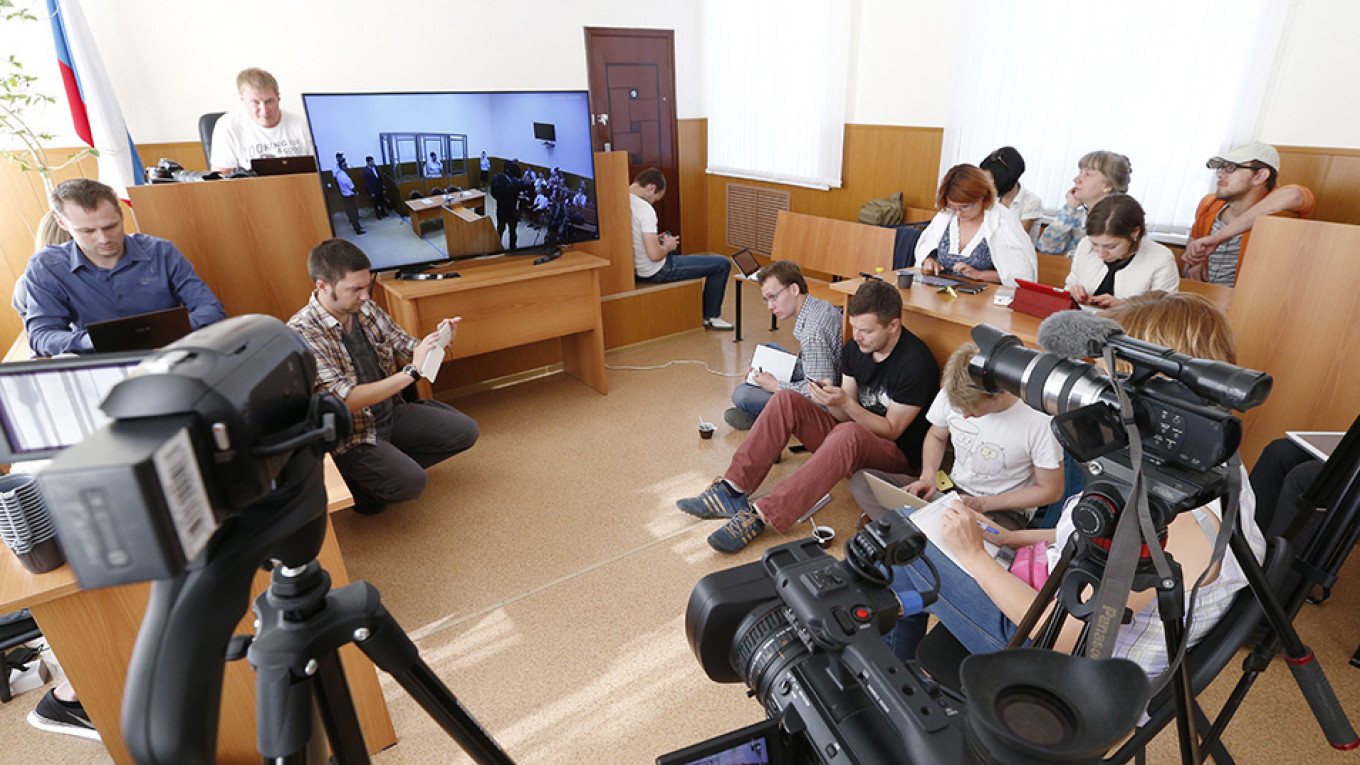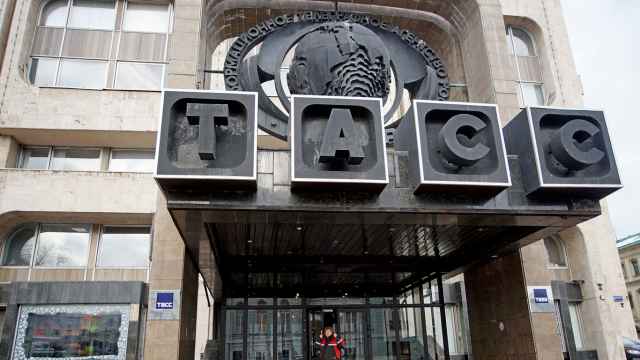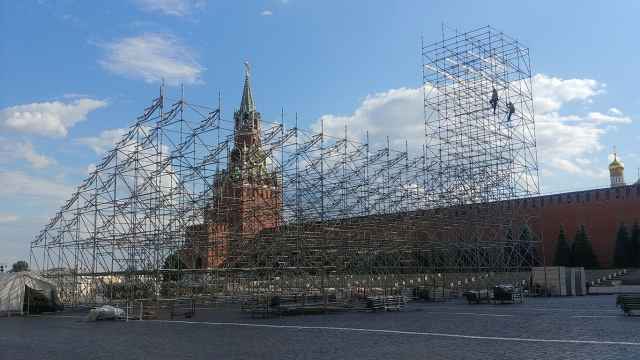Russian judges are considering punishing journalists and media outlets for “biased coverage” of the national court system, the Vedomosti business daily reported Thursday, a move that observers say would harm free speech in the country.
The Russian judicial system’s 2020-2030 draft information policy obtained by Vedomosti aims to penalize the publication of “negative materials” about the court's activities.
“The ‘scandalization of justice' — the manipulation of public opinion toward the judiciary, belittling its authority, indiscriminate and unfounded criticism that undermines public confidence in the process of justice — has gained special urgency,” it reportedly said.
The draft seeks to “suppress abuse by individual members of the media” as part of calls for “an effective protective mechanism against discrediting the judiciary in the media,” Vedomosti reported. The concept reportedly wants a new legal act that introduces special rules on media coverage of the courts, the publication reported.
The proposal follows guilty verdicts handed down to participants and bystanders during mass anti-government protests in Moscow this summer. Critics called the verdicts unjust, and some of the judges reportedly received threats afterward.
The 2020-2030 draft’s overall goal is to improve the Russian judiciary’s image, increasing trust and easing access to information, in addition to stamping down on what it sees as subjective media coverage, according to Vedomosti.
Leonid Nikitinsky, a member of Russia’s presidential human rights council, linked the public's trust in the courts to the government’s overall legitimacy.
“There’s no justice in court, and that’s it. No PR can fix that,” Nikitinsky told Vedomosti.
The Russian Union of Journalists said the proposed penalties threaten free speech and freedom of information.
“In essence, this is an attempt to introduce institutional censorship, and censorship is prohibited by the Constitution,” chairman Vladimir Solovyov said.
“Sometimes even judges need to be reminded of that,” he wrote in an online statement.
The report also comes days after President Vladimir Putin signed a new law that will allow individual journalists and bloggers to be labeled “foreign agents” if they receive money from abroad or distribute foreign media online. Critics say the law, which comes into force on Feb. 1, will tighten curbs on the media and free speech.
UPDATE: The final draft of the information policy proposal does not mention penalties for negative media coverage of the Russian judicial system, Supreme Court justice Viktor Momotov told Interfax.
These suggestions had been part of a working draft and will not be included in the final policy proposal because the text wasn't agreed upon by all of the authors, Momotov added.
A Message from The Moscow Times:
Dear readers,
We are facing unprecedented challenges. Russia's Prosecutor General's Office has designated The Moscow Times as an "undesirable" organization, criminalizing our work and putting our staff at risk of prosecution. This follows our earlier unjust labeling as a "foreign agent."
These actions are direct attempts to silence independent journalism in Russia. The authorities claim our work "discredits the decisions of the Russian leadership." We see things differently: we strive to provide accurate, unbiased reporting on Russia.
We, the journalists of The Moscow Times, refuse to be silenced. But to continue our work, we need your help.
Your support, no matter how small, makes a world of difference. If you can, please support us monthly starting from just $2. It's quick to set up, and every contribution makes a significant impact.
By supporting The Moscow Times, you're defending open, independent journalism in the face of repression. Thank you for standing with us.
Remind me later.






